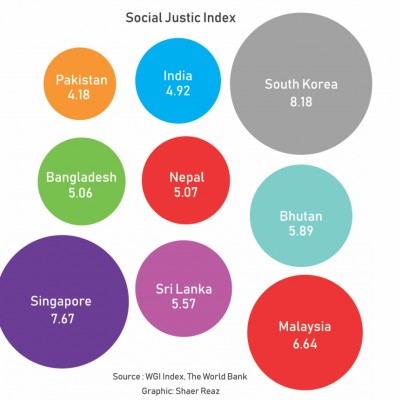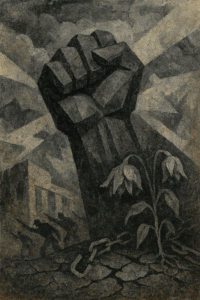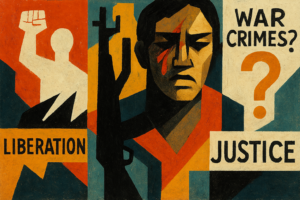
This post has already been read 30 times!
Although there is no universally accepted definition of the term governance, it has become a buzzword since the 1980s. Policymakers and academics seem to agree that governance is fundamental to both economic and social development and that it cannot be left to governments alone. Over the past decades, the concept of governance has undergone significant transformation, its scope has been broadened to include various actors- —the state, market and civil society. The debate on the definition, scope and nature of governance notwithstanding, an instrumentalist understanding of governance has become dominant in common parlance. In this understanding, governance means proficient and impartial delivery of public services and the efficient implementation of socio-economic programmes. Around the world, absence of these have contributed to political malaise such as political instability, violence, the emergence of extremist groups, and declining citizen’s trust in government, to name a few. From this instrumentalist point of view and measured by various related indicators, the state of governance in South Asia is considered very poor. The World Governance Indicators (WGI) of the World Bank have documented poor governance for years.

What are the fundamental challenges to governance in South Asia? I argue that governance in South Asia faces four vital challenges and a combination of these forestalls any major change. These challenges are-—contesting sources of state legitimacy, lack of inclusivity in governance and politics, the absence of the rule of law, and neo-patrimonialism. Any effort to improve the state of governance in South Asia and chart the way forward warrant addressing these challenges in earnest.
The Nation-state, even in its rudimentary form, is based on impersonalised institutions. Since its inception in the 19th century in Europe and replication all around the world, (often through colonialism), nationalism and the nation-state presupposed that individuals’ loyalty to the nation will supersede all other loyalties such as clan, tribe, family and ethnicity. Nation-states in South Asia, a colonial construct, were meant to follow the same pathway, and power was meant to be derived from modern formal institutions rather than traditional informal relationships. Despite the presence of institutional edifice and implementation of codified laws, informal institutions have not completely disappeared. The demise of monarchy in Nepal and relinquishing of many monarchical powers of the Bhutanese king,, in recent years, provide an impression that formal sources of legitimation of power in South Asia is ascendance. But, in countries like Afghanistan, Bangladesh, India, and Pakistan, beneath the formal institutions, longstanding traditional social practices and hierarchy still wield enormous power and often conflict with the states. For example, qwam, or rural, tribal, and familial tie, is considered the primary building block of Afghan life—both social and political. Thomas Barfield, in his seminal work, Afghanistan: A Cultural and Political History, writes, “People’s primary loyalty is, respectively, to their own kin, village, tribe, or ethnic group, generally glossed as qwam.” In Pakistan’s tribal areas, assertive ‘jirga’, acts parallel to the formal state and often is the primary source of legitimation of power. India’s caste system may not be officially recognised, but its influence cannot be ignored either. It determines who holds power. In Bangladesh, while the influence of samaj has diminished as capitalist development has penetrated the rural areas and weakened the traditional patron-client relationship, it hasn’t completely disappeared. In many instances, a new form of informal relationships and new actors of intermediation have emerged. Equally important is the role of religious leaders in the social arena– —iirrespective of religion and country. The most important aspect in South Asian governance is the relationship between formal state power and informal relationship. Despite the presence of formal power structures and institutions, real power is located in the informal personal relationship. In South Asia, they are often fused together. According to British political economist Mick Moore, except for collapsed states, there are four kinds of political systems/states—personalised rule, minimally institutionalised states, institutionalised non-competitive states, and institutionalised competitive states. Each of these states haves different capacities and their degree of legitimacy varies. According to Moore, personalised rules are the systems where governance is based on personalities and personal connections. Institutional ability of the state is highly dependent on personal control of power, and rules of the game emphasise power of elites and personal connections to elites. This kind of system has very low legitimacy. Minimally institutionalised states are characterised by an unstable mixture of personal and impersonal rule, where political parties are based partly on personalities, and state legitimacy is low to modest.

In the case of South Asian states, one of the sources of contestation come from growing proclivity towards religious identities. Pakistan has long identified itself as a Muslim nation, although it has tried to underscore that it is not an Islamic state, thus its state’s legitimacy is not based on the religious diktats. But it has provided religion a significant position in its legitimacy. India’s recent election, especially the victory of the

The second challenge to governance is lack of inclusivity in polity and economy. Inclusivity in this instance means participation from the part of citizens/governed and accountability of the government/whoever governs. Although all South Asian countries practice formal democracy, there is palpable absence of efforts to accommodate the diverse voices in the polity. The Voice and Accountability index of the World Governance Indicators (WGI) shows that of the five countries, only India is above zero while others have remained below zero, in a scale of minus 2.5 to 2.5, for more than a decade (2007-2017).
In the cases of India, Pakistan, and Sri Lanka—the obvious elements in the lack of inclusivity are ethnicity and religion. States in South Asia have miserably failed to incorporate and provide space for diverse voices—the situation in Indian northeast India and Kashmir, Pakistan’s Baluchistan and Khyber Pakhtunkhwa, Sri Lanka’s Tamil question, and Nepal’s Tarai/Madhesi issue are cases in point. Bangladesh’s Chattogram Hill Tracts situation falls into the same category. The experiences lead us to ask the questions: Does the nation-state in South Asia want to efface the difference and distinctiveness of the ‘minorities’? Instead of providing opportunity for open discourse on national identity, and making an effort to accommodate the regionally differentiated, economically disparate, and culturally different nations, the South Asian state often becomes a tool of majoritarianism. And worst, these questions have been phrased as ‘security questions’ and opting for a ‘military solution’—contributing to further marginalisation, and consequently, further weakening the legitimacy of the state. Additional issues such as sectarianism in Pakistan have made the situation worse. The absence of gender sensitivity and proactive policies of the state have left women far behind. The symbolic presence of a few women in politics and governance cannot mask the patriarchal nature of the state and society.
This marginalisation has been further accentuated after adaptation of neo-liberal policies by South Asian states since the 1990s. The ‘developmentalist’ arguments, obsession with GDP growth and business-friendly policies in the name of reforms have brought globalisation close to home but accelerated disparity. For example, the 2018 survey showed that India’s richest one percent held 58 percent of the country’s total wealth, which was higher than the global figure of about 50 percent. The neo-liberal policies have created a permanent underclass at a time when it has also created a new middle class. The new middle class has a penchant for a non-inclusive political system, thus contributing to growing authoritarianism in various countries. Interestingly, these new policies have not increased the effectiveness of states. State effectiveness, measured on a scale of minus 2.5 to 2.5, shows four countries have remained consistently below zero. Trust in institutions hasve largely eroded in the region.
The combination of the personalisation of state and absence of inclusive economic and political systems hasve been made possible through progressive attenuation of rule of law, the third challenge to governance in South Asia. The states in the region, except India, from their respective inceptions, the states in the region, except India, had weak institutions including the judiciary. But it is not only the historical legacy that determined the lack of an independent judiciary, but the ruling elites—civilian and military—had never wanted a constitutional watchdog to rein in their excesses. Data of the past years from the World Justice Project (WJP), of the past years, show that on a scale of zero to one (one being the highest), South Asian states have performed extremely poorly. In 2019, for example, Pakistan has the lowest score of 0.39, followed by Bangladesh with 0.40. The best score in the region is Nepal—0.52. The fundamental problem with absence of the rule of law in the countries is that citizens are not treated equally and thus do not perceive the state as representative of his/hertheir interests.
The fourth challenge to governance in South Asia is the prevalence of a socio-economic system best described as neopatrimonialism. In simplest terms, neopatrimonialism means using state resources for personal gains. Unlike patrimonialism, which is exclusively a personal relationship and refers to an authority pattern where obedience and loyalty is person or family-based, neopatrimonialism is, according to Gero Erdmann and Ulf Engle, ann admixture of ‘two co-existing, partly interwoven, types of domination: namely, patrimonial and legal-rational bureaucratic dominations.’ The personal authority system is masked by some formal elements of governance. In a neopatrimonial system, traditional rules and relationships are juxtaposed with legal rules and procedures. Christopher Clapham, in his seminal work entitled The Nature of the Third World State, described neopatrimonialism as a “form of organisation in which relationships of a broadly patrimonial type pervade a political and administrative system which is formally constructed on rational-legal lines”.
In South Asia, neopatrimonialism has become rampant as statistics on corruption amply demonstrate. Despite expansion of the public sector, states in South Asia are still a major source of economic resources and the executive branch is the final arbitrator of resource allocation. Cronyism, corruption and unproductive rent-seeking have become integral parts of economic planning. Apparently, the rent-seeking has become decentralised, under the guise of party and ruling elite. As noted by Farzana Nawaz, “The basic structure of neopatrimonial regimes consists of three sectors- —the ‘ins’, the ‘outs’ and the government. The government derives its support by providing patronage to the ‘ins’ (clients, cronies etc.) and funds this by taxing the ‘outs’.” South Asia is no exception. The neopatrimonial system results in high economic disparity, as discernable in all states in the region. But its impacts are far beyond the economic arena as it undermines the accountability system and the rule of law.
These four challenges are intertwined and feed one another, thus creating a loop of mal-governance; it continues to perpetuate a system which fails to address the needs of a large segment of the citizens and further marginalises citizens. The long-term impacts of poor governance, are not only political instability, violence, the emergence of extremist groups, and decline in citizen’s trust in government but also weakening of the feeble democracy and creating an unjust society. No wonder the states in South Asia are also low in terms of social justice as documented in the Bertelsmann Index.
[This essay is based on the author’s lecture delivered at the ‘1st International Conference on Governance in the 21st Century in South Asia: Challenges and Ways Forward’ held on July 7-8 at Jahangirnagar University
The Daily Star, July 26, 2019.
This post has already been read 30 times!





